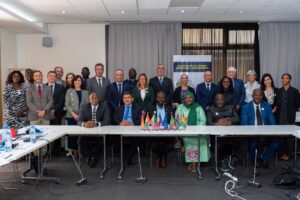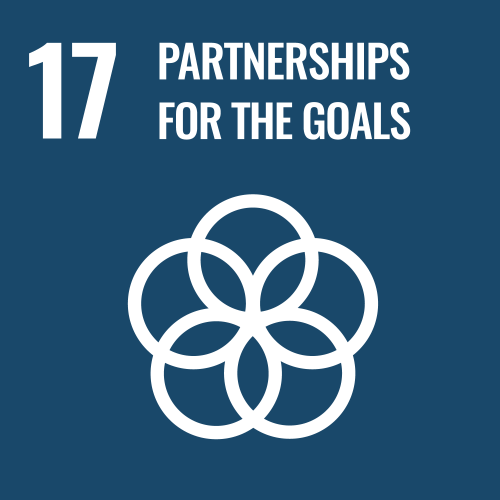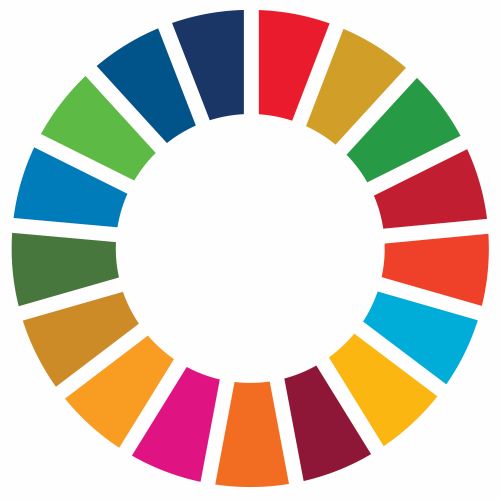
25/06/2025
The problems associated with the creation of a regional assistance and coordination office were also presented.
The NET-COP II project starts in June 2023 as a continuation of NET-COP I, financed by the European Union’s Directorate General for Migration and Home Affairs under the Internal Security Funds, and will end in July 2025.
Within the framework of this project, a meeting was held with the authorities responsible for the Investigation Units specialized in migrant smuggling and human trafficking of the countries involved in the project: Côte d’Ivoire, Gambia, Guinea, Mauritania and Senegal. There, the memorandum of understanding was presented and signed. The problems associated with the creation of a regional office for assistance and coordination were also discussed. The prospects opened through the financing of a third phase of NETCOP by the European Union.
The signing of a memorandum of understanding is intended to ratify an adhesion mechanism that will give legal validity to the exchange of information and police operational cooperation between all investigative units and Joint Operational Partnerships (JOPs) of the countries that are part of the project, thus laying the groundwork for a future NETCOP regional coordination office.

This activity is part of a formal, flexible and non-binding framework based on respect for the sovereignty of States, the confidentiality of information and the strict protection of shared operational data for greater effectiveness in the fight against human trafficking and migrant smuggling crimes. By signing the memorandum, the states will mobilize the necessary efforts and resources to combat this type of crime and related offenses.
The problems associated with the creation of a regional assistance and coordination office were also presented. The purpose of this office is to coordinate and facilitate operational assistance between the National Investigation Units, signatories to the memorandum, competent in the fight against smuggling of migrants, trafficking in human beings and related offenses. Its functions include the administration of the NETCOP computerized system and ensuring the logistical and organizational tasks related to the proper functioning of the system.
FR
Les problématiques liées à la création d’un bureau régional d’appui et de coordination ont également été présentées
Le projet NET-COP II a débuté en juin 2023, en continuité avec NET-COP I, financé par la Direction Générale des Migrations et des Affaires Intérieures de l’Union européenne dans le cadre des Fonds pour la Sécurité Intérieure, et s’achèvera en juillet 2025.
Dans le cadre de ce projet, une réunion s’est tenue avec les autorités responsables des Unités d’investigation spécialisées dans le trafic illicite de migrants et la traite des êtres humains des pays impliqués dans le projet : Côte d’Ivoire, Gambie, Guinée, Mauritanie et Sénégal. Lors de cette rencontre, le mémorandum d’entente a été présenté et signé. Les problématiques liées à la création d’un bureau régional d’ appui et de coordination ont également été exposées, ainsi que les perspectives ouvertes grâce au financement d’une troisième phase de NETCOP par l’Union européenne.
La signature d’un mémorandum d’entente vise à ratifier un mécanisme d’adhésion conférant une validité juridique à l’échange d’informations et à la coopération opérationnelle policière entre toutes les unités d’investigation et les Partenariats Opérationnels Conjoints (POC) des pays membres du projet, jetant ainsi les bases d’un futur bureau régional de coordination NETCOP.
 Cette activité s’inscrit dans un cadre formel, flexible et non contraignant, fondé sur le respect de la souveraineté des États, la confidentialité des informations et la stricte protection des données opérationnelles échangées, afin d’accroître l’efficacité dans la lutte contre la traite des êtres humains et le trafic illicite de migrants. Grâce à la signature du mémorandum, les États mobiliseront les efforts et les ressources nécessaires pour combattre ces infractions et les délits connexes.
Cette activité s’inscrit dans un cadre formel, flexible et non contraignant, fondé sur le respect de la souveraineté des États, la confidentialité des informations et la stricte protection des données opérationnelles échangées, afin d’accroître l’efficacité dans la lutte contre la traite des êtres humains et le trafic illicite de migrants. Grâce à la signature du mémorandum, les États mobiliseront les efforts et les ressources nécessaires pour combattre ces infractions et les délits connexes.
Les problématiques liées à la création d’un bureau régional d’appui et de coordination ont également été présentées. L’objectif de ce bureau est de coordonner et de faciliter l’assistance opérationnelle entre les Unités Nationales d’Investigation signataires du mémorandum, compétentes dans la lutte contre le trafic illicite de migrants, la traite des êtres humains et les infractions connexes. Parmi ses fonctions figurent la gestion du dispositif informatique NETCOP ainsi que l’exécution des tâches logistiques et organisationnelles nécessaires au bon fonctionnement du système.

